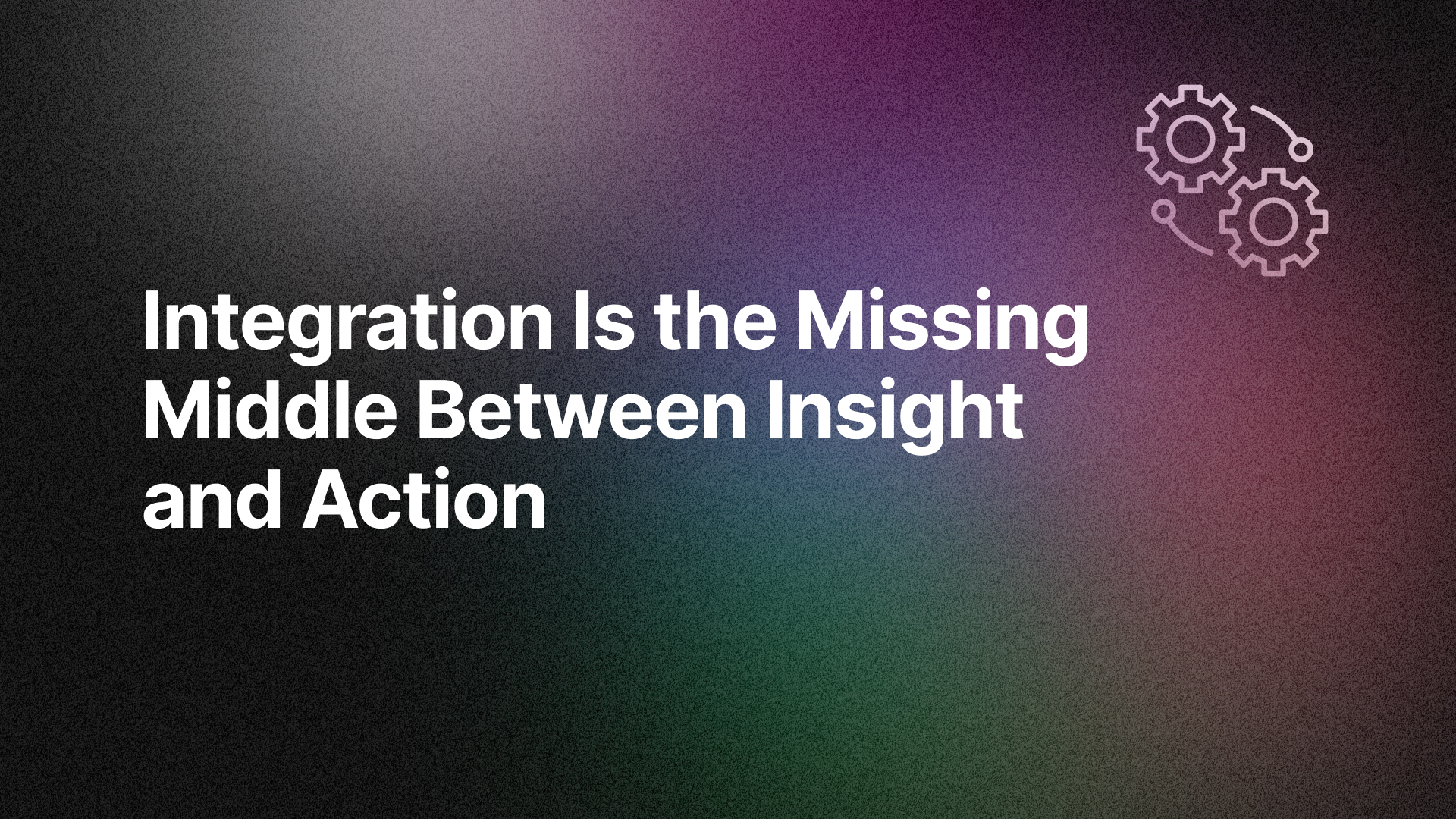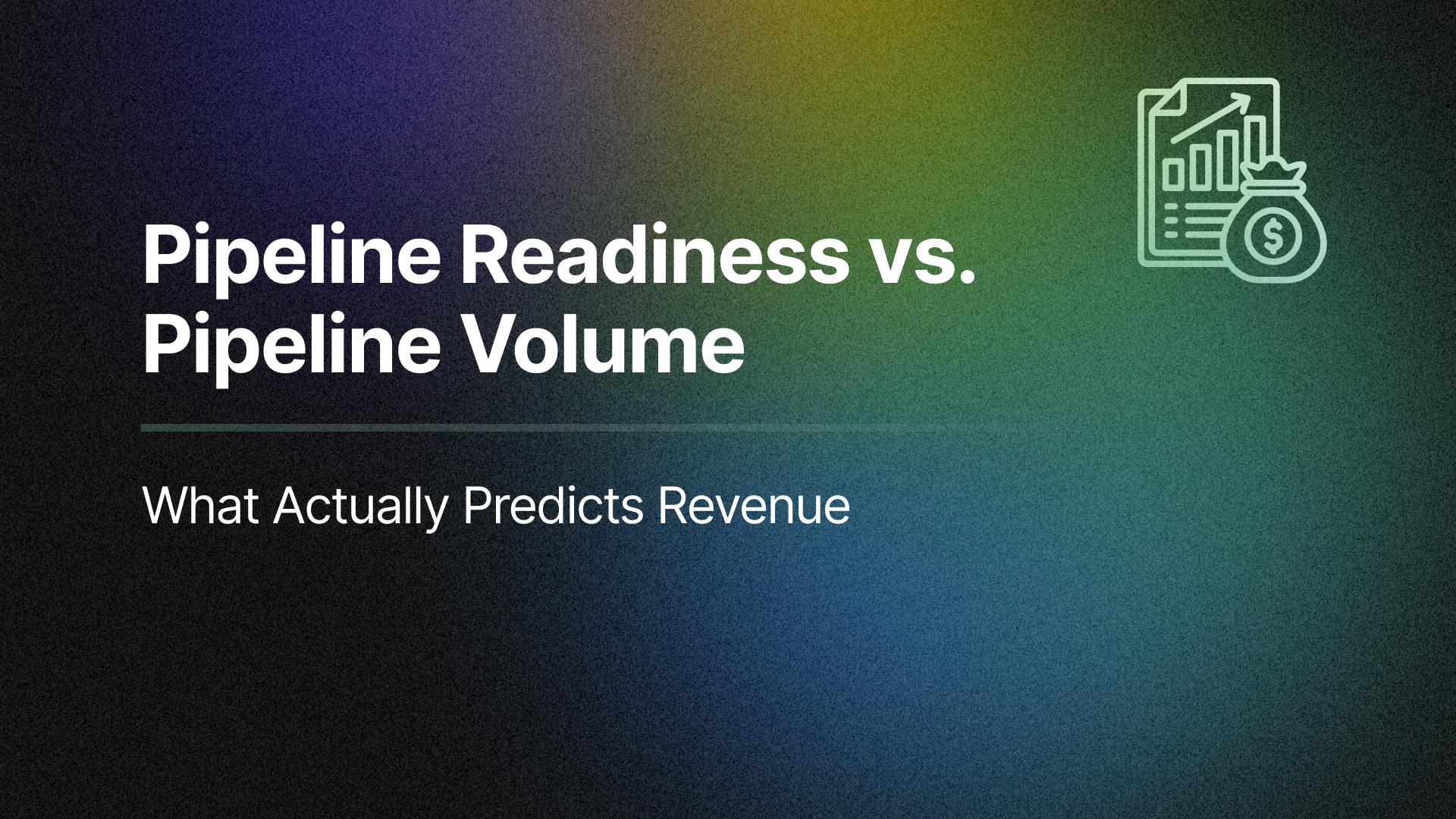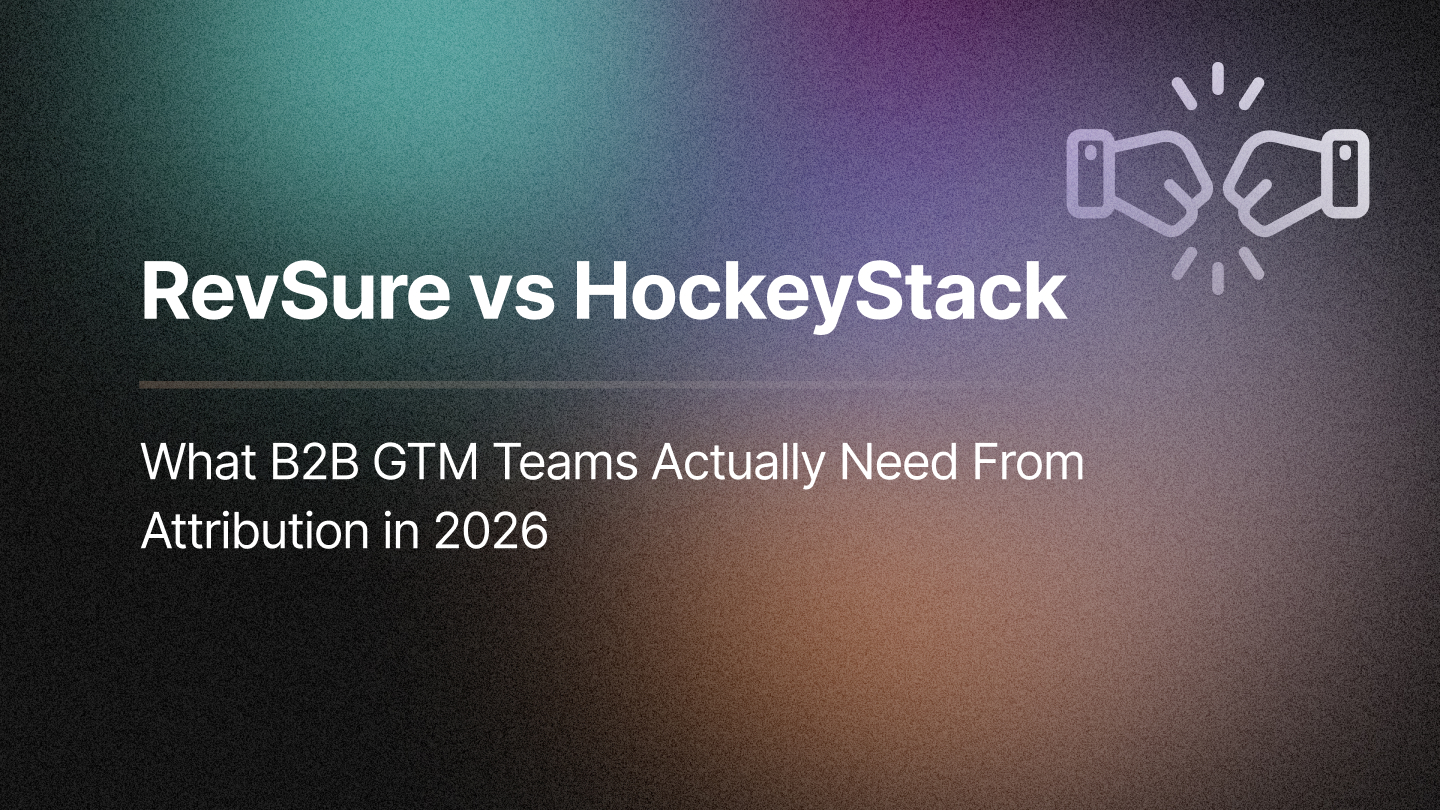In the fast-evolving landscape of B2B marketing, attribution models play a critical role in shaping strategies and investment decisions. For years, last-click attribution has dominated the conversation, but its limitations are becoming increasingly evident. As B2B marketers seek more accurate ways to measure marketing effectiveness, Marketing Mix Modeling (MMM) emerges as a powerful, data-driven alternative.
This blog explores why last-click attribution is outdated, how Marketing Mix Modeling provides a more comprehensive approach, and how AI-powered solutions like RevSure can enhance marketing insights and ROI.
Why Last-Click Attribution is Holding You Back
Last-click attribution is a simple, easy-to-implement model that credits the final touchpoint before conversion as the sole driver of success. While this method offers immediate insights, it comes with severe limitations:
- Ignores Multi-Touch Journeys: B2B buying cycles are long and complex, involving multiple interactions across different channels before a decision is made.
- Overvalues Bottom-Funnel Tactics: Channels like PPC and retargeting ads receive undue credit, while awareness-building activities like content marketing and social media are undervalued.
- Fails to Account for Brand Influence: Long-term brand equity and thought leadership efforts often contribute significantly to conversions but are overlooked in last-click models.
- Short-Term Focus: Marketers relying on last-click tend to prioritize quick wins rather than long-term strategy.
The result? Suboptimal budget allocation, missed opportunities, and a skewed understanding of marketing impact.
The Problem in Real Numbers
A recent study found that only 17% of B2B marketers feel confident in their current attribution model. Furthermore, over 60% of marketing leaders report that they are investing too much in lower-funnel channels due to the shortcomings of last-click attribution. These statistics highlight the urgent need for a more holistic approach like Marketing Mix Modeling.
Enter Marketing Mix Modeling (MMM)
Marketing Mix Modeling (MMM) addresses these gaps by offering a holistic view of marketing performance. Instead of focusing on individual user journeys, MMM analyzes aggregated data over time to determine how different marketing activities contribute to business outcomes.
How MMM Works
MMM uses statistical analysis, regression modeling, and AI-driven insights to measure the impact of various channels—both online and offline—on key metrics like lead generation, pipeline growth, and revenue. Unlike traditional attribution models, it accounts for:
- Marketing investments (ad spend, content production, events, etc.)
- External factors (macroeconomic conditions, seasonality, competitive landscape)
- Key performance indicators (pipeline, conversions, customer acquisition cost, and ROI)
By integrating these factors, MMM provides a data-backed framework for budget optimization and strategic planning.
The Evolution of MMM in B2B Marketing
Originally used by large enterprises in the consumer goods industry, MMM has now become a key strategy in B2B marketing. Thanks to advancements in AI and machine learning, businesses of all sizes can leverage MMM to fine-tune their marketing strategies.
The Benefits of Marketing Mix Modeling for B2B Marketers
1. Holistic Attribution Across All Channels
MMM evaluates the effectiveness of all marketing channels—paid, organic, content, events, social media, and email—providing a comprehensive view of what truly drives revenue. Unlike last-click models, it ensures that awareness-building activities get the credit they deserve.
2. Smarter Budget Allocation
With precise insights into which channels deliver the best ROI, marketing leaders can optimize budget allocation. MMM helps organizations strike the right balance between brand-building and performance-driven activities, ensuring that marketing dollars are spent effectively.
3. Predictive Capabilities for Future Planning
MMM doesn’t just analyze past performance—it enables scenario modeling and forecasting. Marketers can simulate budget changes and predict their impact on pipeline and revenue, helping them make data-driven decisions.
4. Privacy-Compliant and Future-Proof
As cookie-based tracking declines, MMM provides a privacy-first alternative that doesn’t rely on third-party cookies, UTM tracking, or identity resolution. It remains relevant in a world where data privacy regulations (GDPR, CCPA) continue to evolve.
5. Proving Marketing’s Revenue Contribution
One of the biggest challenges B2B marketers face is justifying their budgets. MMM provides concrete data linking marketing activities to revenue outcomes, making it easier to defend budget requests and demonstrate ROI.
Implementing Marketing Mix Modeling in Your Organization
To successfully leverage MMM, marketing teams should:
- Aggregate and clean data – Collect historical marketing spend, sales data, and external factors.
- Use AI-driven tools – Advanced platforms like RevSure help automate complex MMM calculations.
- Collaborate across departments – Work closely with finance, sales, and data teams to align insights with business goals.
- Continuously test and iterate – Refine the model over time by running controlled marketing experiments.
How RevSure’s AI-Powered Marketing Mix Modeling Enhances Attribution
RevSure provides an advanced, AI-driven Marketing Mix Modeling solution designed to help B2B marketing teams maximize efficiency and improve decision-making.
- Understanding Channel ContributionsL: RevSure quantifies the contribution of each marketing channel—whether it’s paid media, content marketing, events, or SEO—to pipeline and bookings. This allows for data-backed budget allocation and strategic adjustments.
- Optimizing Performance with AI: RevSure’s AI-powered MMM refines marketing strategies by analyzing spending patterns, campaign effectiveness, and engagement trends. Marketers can optimize bookings per marketing dollar spent and maximize ROI across all marketing channels.
- Enhancing Campaign Effectiveness: RevSure identifies high-impact tactics, optimal timing, and the best-performing channels, ensuring that marketing investments are maximized for long-term success.
- Measuring Long-Term Impact: Rather than just focusing on short-term conversions, RevSure considers long-term brand equity and delayed impact. Marketers can assess how past campaigns, content, and events contribute to revenue months down the line.
- Privacy-First and Bias-Free Attribution: With increasing data privacy restrictions, RevSure’s MMM model is compliant and unbiased—providing attribution insights without relying on cookie tracking or UTM codes.
Moving Toward Smarter B2B Attribution
B2B marketers can no longer afford to rely on outdated, last-click attribution models. Marketing Mix Modeling offers a smarter, AI-driven alternative that provides a comprehensive, predictive, and privacy-compliant approach to measuring marketing success.
By adopting MMM with tools like RevSure, marketing teams can:
- Gain a holistic view of marketing impact
- Allocate budgets strategically and efficiently
- Forecast and optimize future performance
- Ensure compliance with evolving privacy regulations
Final Thoughts
As marketing complexity increases, so does the need for data-driven decision-making. Marketing Mix Modeling is the key to moving beyond outdated attribution models and unlocking the full potential of marketing investments.
The future of B2B marketing lies in intelligent measurement, predictive analytics, and AI-driven insights. Are you ready to move beyond last-click and embrace the power of Marketing Mix Modeling?
Related Blogs







